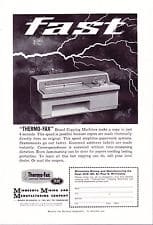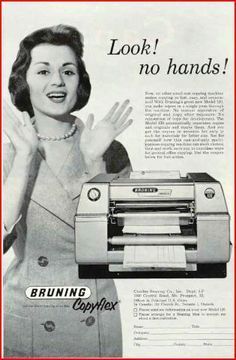The fax machine is a lot older than you might think. Its first commercial use was providing service in France between Paris and Lyon in 1865. That's 11 years before Alexander Graham Bell's invention of the telephone! Indeed, the trusty fax machine lived a long and eventful life. With the advent of Paubox SECURE 2017, the time has come for remembrance of life for fax technology.
We will hold a wake for the fax machine on Thursday, October 2nd at the Cowell Theater in San Francisco.
The Birth of the Fax Machine

The word fax is short for facsimile. A fax is the "telephonic transmission of scanned printed material, normally to a telephone number connected to a printer or other output device." While the first commercial use of the fax machine occurred in 1865, the inception of a fax service took place almost 20 years earlier. In 1846, Scottish inventor Alexander Bain worked on chemical mechanical fax type devices that could reproduce graphic signs in lab experiments. From there, Italian physicist Giovanni Caselli invented the Pantelegraph (a hybrid of pantograph and telegraph) where its first commercial use happened in 1865. For over 150 years, the use of the fax machine has been cumbersome, costly, and difficult to operate. It wasn't until 1964 when the Xerox Corporation introduced the first “commercial” version of today’s fax machine, LDX (Long Distance Xerography). Two years later, Xerox invented the Magnafax Telecopier, a 46-pound behemoth that, ironically by today's standards, was easier to use and could connect to a telephone line. The fax machine we've known until today was officially born.
The Golden Age of the Facsimile Machine

The fax market soon took off after Xerox's 1966 Magnafax Telecopier. By the late 1970s, both national and international companies had entered the fax market, especially Japan. The technological advances of the fax system led to faxes becoming a staple in United States business offices in the 1980s. This Golden Age lasted in America until the early 2000s. The fax machine advanced from a document transmitter to a copier and scanner as well. In a pre-internet age, fax machines were revolutionary. The electric currents involved with electric printing were fascinating.
Sending letter-sized documents between cities like New York, London or Berlin could only take minutes. What a glorious time for the 20th century! But sadly, all good things must come to an end. As the Internet emerged, the fax machine slowly phased out of modern businesses in favor of online alternatives.
Today, you can transmit documents in an email and deliver it to your recipient within seconds. This includes sending sensitive information such as credit card information or PHI in a secure manner through encrypted email.
Compared to the lightning speed of the world wide web, fax machines seem slow and outdated. Some businesses do still have a fax machine, though they are more of a prop than anything else. But other businesses still rely heavily on the fax machine, such as the healthcare industry. Did you know it costs nearly $250 billion to process 30 billion healthcare transactions each year, 15 billion of which are faxes? It's time for a serious upgrade.
3 Things I Will Miss About the Fax Machine
- The thrilling suspense of receiving a cover sheet without the proper information filled out. (It's like receiving a gift from a stranger.)
- The delightful tune of a dial tone screech.
- Having to hang up the phone before sending a fax because there is only one phone line.
RIP Fax Machine, 1865 - 2017. You will be dearly missed, but the era of the fax machine is over. What took the fax machine a few minutes to accomplish takes only seconds with a secure email. Healthcare, we need to talk. It's time to shift away from the slow, outdated fax machine to a more modern, HIPAA compliant way to send patient information: encrypted email.
